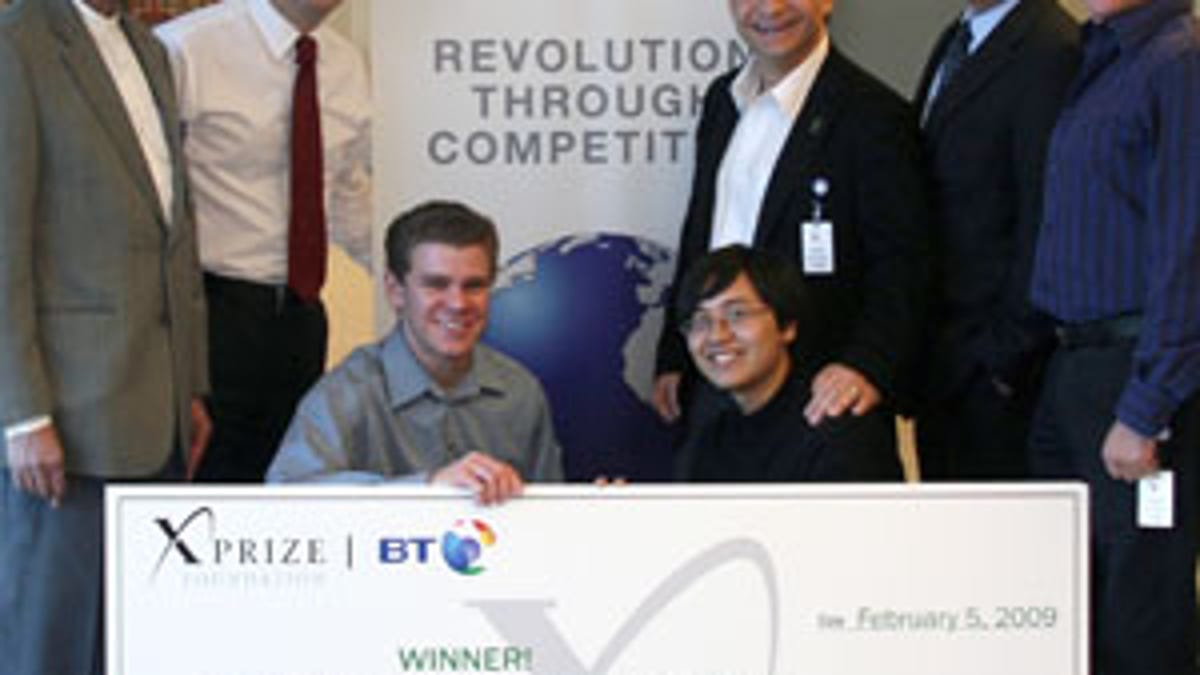X Prize announces green-idea winners
UC Irvine student winners, chosen via a YouTube contest, challenge someone to create an energy-efficient and nontoxic storage device to replace all conventional lead acid batteries.

The X Prize Foundation announced the winner of its "What's Your Crazy Green Idea?" competition on Thursday.
The first-place winners, which will receive $25,000, were University of California at Irvine students Kyle Good and Bryan Le on the Capacitor Challenge team, for their idea that someone should develop a more efficient energy storage device to replace batteries, for everything from iPods to cars.
Unlike other X Prize competitions, the winners of "What's Your Crazy Green Idea?" were not picked by a panel of educationally pedigreed judges to build an invention for which they submitted plans.
Instead, the creative-idea winners of the "X Prize in Energy and Environment" were chosen through a contest held on Google's YouTube. Competing among 130 submissions, Good and Le's team video garnered about 4,200 votes.
"Capacitors recharge in seconds, survive thousands of recharge cycles, and provide high-efficiency electricity by using environmentally benign materials. But here's the challenge: capacitors are far more expensive (and) provide far less energy than common batteries," Le said in his team's contest pitch video on YouTube (below). "We invite the next generation of inventors and engineers to construct an energy storage device far more advanced, far more environmentally friendly, far more affordable than we have yet to see in our lifetime."
While they are absolutely right about the need for such a device, the idea is quite a hard technological challenge.
For the engineering geniuses game for taking a crack at this, here are the guidelines, as proposed by the Capacitor Challenge team:
- Use only self-contained capacitors.
- Exceed the energy density of average lead acid batteries.
- Fully recharge in less than a minute and up to 500,000 cycles.
- Be completely recyclable and incorporate nontoxic materials.
- Cost less than twice the price of average lead acid batteries.

